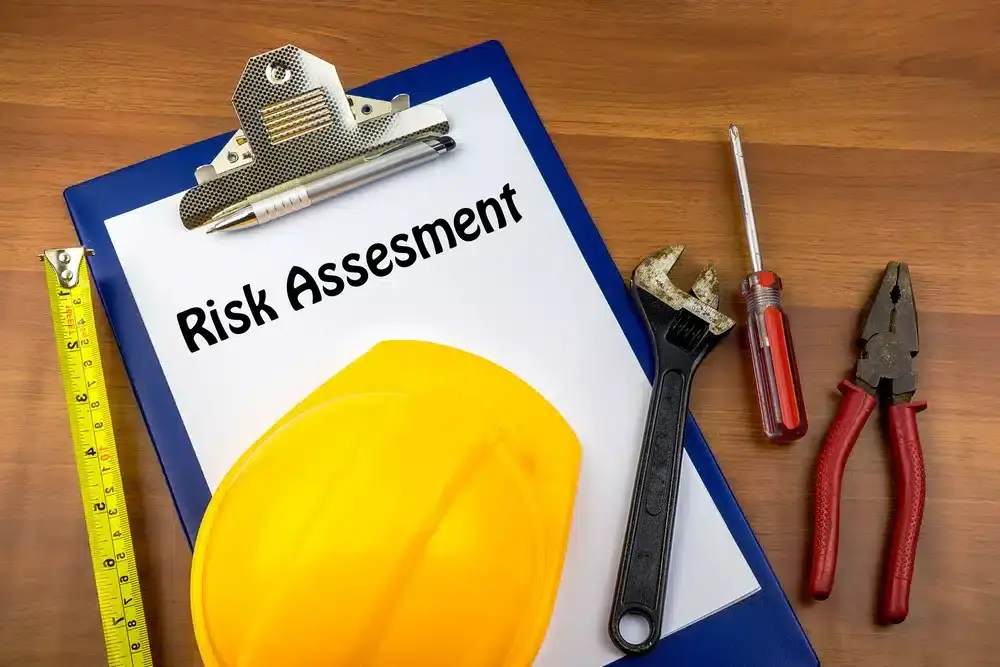In the dynamic world of construction, managing risks and ensuring project success is crucial. Surety bonds construction offer a reliable solution for contractors, project owners, and other stakeholders to navigate the complexities of construction projects while safeguarding their investments. This comprehensive guide will walk you through the ins and outs of surety bonds construction, their essential types, legal requirements, and practical steps to obtain and manage these valuable risk management tools. Are you ready to unlock the secrets of surety bonds construction and pave the way to successful project completion? Let’s dive in!
Key Takeaways
- Construction surety bonds are legal agreements that guarantee contractors fulfill their contractual obligations, protecting project owners from financial loss.
- The key players involved in surety bonds are the project owner, contractor and surety company who all play a crucial role in protection.
- Proactive risk management is essential to handle claims against construction surety bonds and protect projects from potential losses.
Understanding Construction Surety Bonds

Construction surety bonds are legal agreements that guarantee contractors will fulfill their contractual obligations, offering financial security and assurance of performance. In the construction industry, these bonds play a vital role in protecting project owners, subcontractors, and suppliers from financial loss due to contractor default or non-performance.
Construction bonds typically involve three main parties:
- The obligee: the entity that necessitates the principal to acquire the bond, usually a government agency.
- The principal: the party that is obligated to acquire the bond.
- The surety: the party that assumes the financial risk from the principal by guaranteeing the bond financially.
Construction surety bonds, such as contractor license bond, are typically mandated by state and local licensing entities as a prerequisite for obtaining a contractor license. While venturing into construction bonds may initially appear challenging, gaining a firm grasp of their purpose and the primary participants paves the way for effective risk management and project triumph.
The Role of Surety Bonds
Surety bonds serve as a lifeline for project owners, subcontractors, and suppliers, shielding them from financial loss due to contractor default or non-performance. They act as a safety net, ensuring that even if the contractor fails to deliver on their promises, the project owner has a backup plan in place to recover from any potential setbacks. In a world where construction projects are often fraught with uncertainties, surety bonds provide a much-needed sense of stability and peace of mind.
The bonding process itself involves a surety bond company, which furnishes the bond for the project and is obligated to arrange for the completion of the contract in the event of the contractor’s failure to fulfill their obligations. This bond agent ensures that the project owner is protected from financial loss and can rest assured that their project is in good hands, even in the face of unexpected challenges.
Key Players in Surety Bonds
The key players in surety bonds include:
- The project owner (obligee): the party protected by the bond, typically the property owner, public agency, or other requiring party
- The contractor (principal): the party accountable for the fulfillment of the contract and is the one who is bonded
- The surety company: assumes the financial risk from the principal by guaranteeing the bond financially and is responsible for ensuring the completion of the contract in the event of the contractor’s failure to fulfill their obligations.
A clear comprehension of the duties and functions of each participant in the surety bond procedure aids in smoothly steering through the intricate realm of construction bonding, consequently safeguarding your project from potential risks such as contractor nonperformance or default.
Obtaining a Construction Surety Bond

Obtaining a construction surety bond involves a prequalification process that assesses a contractor’s eligibility for a bond based on their financial stability, experience, and capacity. This process includes evaluating financial statements, work in progress (WIP) reports, organizational structure information, and other related documents. Determining the type of surety bond or bonds necessary for the specific project under consideration is of pivotal importance. Factors that affect the cost of a surety and construction bond types include credit score, experience, and business profile.
Collaboration with a trustworthy surety company is fundamental in acquiring a construction surety bond, as they can impart valuable guidance and back-up throughout the bonding procedure. A surety broker can also offer counsel on the most effective method for submitting program requirements to a surety bonding company beforehand.
With the right surety, construction company, and broker, obtaining a construction surety bond can be a smooth and efficient process, ensuring the protection of your project and peace of mind.
Prequalification Process
The prequalification process forms a critical stage in securing a construction surety and bond amount, as it aids in evaluating a contractor’s suitability on the grounds of their financial steadiness, experience, and capability. Surety companies assess various documents, such as financial statements, work in progress (WIP) reports, organizational structure information, and other related documents, to evaluate a contractor’s ability to fulfill obligations and obtain higher bond limits.
The bond line amount, or the maximum size and number of jobs a contractor can work on concurrently, is impacted by business financials, industry experience, and credit strength. By successfully navigating the prequalification process and demonstrating financial stability and experience with larger projects, contractors can secure a bond line that reflects their capacity to manage multiple projects effectively.
Working with a Surety Company
Interacting with a dependable surety company is vital in procuring a construction surety bond, as it assures comprehensive guidance and support throughout the bonding process. A surety broker can provide counsel on the most effective method for submitting program requirements to a surety company, ensuring a smooth and efficient process.
It is crucial for contractors to establish trust with surety companies by:
- Supplying accurate and timely data
- Exhibiting financial dependability
- Having a solid record of completing projects within the allocated timeframe and budget
By maintaining strong relationships with surety companies and consistently providing accurate information, contractors can ensure a successful bonding process and secure the necessary bonds for their projects.
Essential Types of Construction Surety Bonds

Three fundamental types of construction surety bonds exist: bid bonds, performance bonds, and payment bonds. Each type of bond serves a specific purpose in the construction project, offering varying levels of protection for project owners, subcontractors, and suppliers. Understanding the different types of bonds and their functions is key to ensuring your project has the appropriate safeguards in place.
Bid bonds guarantee that a contractor will enter into a contract and provide the required bid and performance bonds and payment bonds if awarded the project. Performance bonds protect project owners from financial loss due to contractor default or substandard work. Payment bonds ensure that contractors have the financial capacity to pay subcontractors, laborers, and suppliers.
Acquainting yourself with these fundamental types of construction surety bonds enables enhanced protection of your project and effective risk management throughout its progression.
Bid Bonds
Bid bonds are necessary prior to participating in a bidding process for a project and assuring that you will enter into the contract and fulfill the contract at the bid quote should your bid be chosen. They provide assurance to a project owner that a contractor will adhere to their commitment to execute and complete the job they are bidding on and will provide a final bond supported by a surety company after the project award.
In the event of a claim on a bid bond, the responsibility of notifying the surety company falls upon the project owner. Bid bonds serve a pivotal function in assuring the contractors’ commitment to the projects they bid on, coupled with their ability to furnish the required financial and performance guarantees to ensure completion.
Performance Bonds
Performance bonds are typically required to guarantee that the contractor will fulfill the obligations outlined in the contract, ensuring the project owner is safeguarded financially in the event of a breach of contract by the contractor. They provide project owners with protection from financial loss resulting from contractor default or substandard work.
Performance bonds play a crucial role in preserving the trust and confidence of project owners by assuring the completion and quality of work despite potential obstacles. By securing a performance bond, contractors demonstrate their dedication to fulfilling their commitments and providing financial protection to all participants in the construction project.
Payment Bonds
Payment bonds are a form of surety bond that guarantees the contractor will pay subcontractors and suppliers in a timely manner for their work and supplies. They confer benefit to subcontractors and suppliers, who may make a claim against the bond if the general contractor fails to make payment of contract bond in a timely manner.
Supply bonds, on the other hand, guarantee that the necessary building supplies or materials will be supplied to a project, safeguarding the general contractor or owner from default by the supplier. A construction bond can also provide additional security in such situations.
Payment bonds serve a pivotal function in guaranteeing fair remuneration for all parties involved in a construction project, thereby fostering trust and confidence for the project’s duration.
Legal Requirements for Construction Surety Bonds

The legal requirements for construction surety bonds may vary according to the state and the particular project. State laws require construction companies and general contractors to obtain a construction surety bond for licensing, submitting project bids, and signing construction contracts. This bond helps protect the interests of all parties involved in the construction project. Government agencies may also require a bond as a condition for obtaining construction-related licenses and permits. The aim of these bonds is to protect the project owner from financial loss in the event that the contractor fails to carry out the construction contract in accordance with its terms and conditions.
Federal projects necessitate the acquisition of specific bonds as stipulated in the Miller Act, while state and local projects necessitate the implementation of construction surety bonds in accordance with their respective regulations.
Comprehending the legal prerequisites for construction surety bonds is crucial for adherence to the law and shielding your project from possible hazards.
Federal Projects
For federal projects, payment and performance bonds are required to safeguard public interests and guarantee project completion. The Miller Act stipulates the requirement of payment and warranty bonds and performance bonds to be employed on federal projects. Contractors executing federal construction contracts exceeding $150,000 must obtain two types of surety bonds: a payment bond and a performance bond. Payment bonds are now mandated for all federal construction contracts surpassing $100,000.
Construction surety bonds are of vital importance for public projects, as they protect public funds from additional costs that could stem from a contractor’s non-compliance or default. By understanding the legal requirements for construction surety bonds on federal projects, you can ensure compliance and protect your project from potential financial loss.
State and Local Projects
State and local projects may have varying bonding requirements, which may be influenced by applicable local laws and regulations. These bonds are typically mandated as a condition for obtaining construction-related licenses and permits. The bonding requirements may encompass payment bonds and performance bonds, which are generally necessary for government projects falling under the Federal Miller Act or Little Miller Acts.
The requisite amount of the bond is often established at 100% of the contract price to safeguard claimants providing labor or materials to the contractor. It is essential to note that the particular bond requirements and regulations may differ from state to state.
By understanding the legal requirements for construction surety bonds on state and local projects, you can ensure compliance and protect your project from potential financial loss.
Managing Risks with Construction Surety Bonds

Utilizing construction surety bonds to manage risks involves mitigating financial risks and enhancing reputation and trust among project stakeholders. The risks associated with construction surety bonds comprise contractor failure, inadequate project management, incomplete or inaccurate estimates, lack of materials or suppliers, and the possibility of financial loss due to mishandling of funds by the contractor.
For mitigating financial and quality assurance risks and enhancing reputation and trust, verifying the contractor’s qualifications, along with their necessary experience and resources for project completion, is indispensable. Furthermore, purchasing construction bonds indicates that your business is extended a form of credit, which can be an economical way of dealing with obligee and state requirements.
Mitigating Financial Risks
In order to reduce financial risks in construction projects, proper planning, communication, and risk assessment are implemented to minimize the likelihood of contractor default or non-performance. Evaluating the contractor’s financial stability, guaranteeing precise estimations, and having a comprehensive comprehension of the contract terms are essential steps in mitigating financial risks associated with construction surety bonds.
Active management of financial risks and making sure all project stakeholders are cognizant of their duties can help contractors lessen the likelihood of expensive hitches and guard the financial interests of project owners, subcontractors, and suppliers.
Enhancing Reputation and Trust
Construction surety bonds bolster the reputation and trustworthiness of contractors by displaying their financial solidity, dedication to fulfilling commitments, and capacity to provide financial protection to all participants in the construction project. Contractors can foster trust with surety companies by supplying precise and prompt data, exhibiting financial dependability, and having a sound record of finishing projects within the allocated timeframe and budget.
Furthermore, contractors should be cognizant of the surety company’s requirements and be ready to provide any extra information or documents that may be requested. Sustaining robust relationships with surety companies and consistently producing high-quality work allows contractors to boost their reputation and establish trust among project stakeholders.
Handling Claims Against Construction Surety Bonds

Handling claims against construction surety bonds involves resolving bond claims and preventing future claims through proactive risk management. The primary catalysts of claims comprise project intricacy, deficient communication, and scarcity of financial solidity. In the event of a breach or incident, a response team should be mobilized expeditiously to forestall additional harm.
Grasping the factors leading to bond claims and introducing preventive measures, such as AI-driven risk identification and prevention, can assist contractors in reducing the prospects of future claims and safeguarding their projects from possible financial losses.
Resolving Bond Claims
The surety may appoint a new general contractor to fulfill the contract, or compensate the obligee for any losses they sustained, in order to resolve a payment bond protects or claim. A payment bond claim can be made by a subcontractor who has not been paid in terms of their contract. The surety can then decide to distribute a payment to the subcontractor..
Once a claim has been satisfied, the surety will seek reimbursement of any losses or expenses incurred, as outlined in the indemnity agreement, from the principal. By effectively resolving bond claims and ensuring that all parties are fairly compensated, contractors can maintain trust and confidence among project stakeholders and minimize the potential for future disputes and financial losses.
Preventing Future Claims
In order to prevent future claims, contractors should continuously improve their project management, financial stability, and communication with project stakeholders. By proactively identifying and addressing potential risks, contractors can minimize the likelihood of future claims and protect their projects from financial losses.
Establishing clear policies and procedures, specifying penalties for policy violations, and including comprehensive settlement agreements in contracts can also help prevent future claims. Adopting a forward-thinking approach to risk management and nurturing robust relationships with surety companies can assure contractors of the fruitful completion of their projects and shield their reputation and trust among project stakeholders.
Summary
Construction surety bonds play a vital role in managing risks and ensuring the success of construction projects. By understanding the different types of other surety bonds, their functions, and legal requirements, contractors can protect their projects from potential financial losses and maintain trust among project stakeholders. Through proactive risk management and continuous improvement in project management, financial stability, and communication, contractors can prevent future claims and ensure the successful completion of their projects. With the right knowledge and tools, contractors can navigate the complex world of construction surety bonds and pave the way to a successful and financially secure future in the construction industry.
Frequently Asked Questions
What are the 3 main bonds for a construction project?
The three primary bonds required for construction projects are bid bonds, performance bonds, and payment bonds. Other bonds such as a maintenance bond, supply, subdivision and site improvement bonds may also be necessary.
What are the four types of bonds in construction?
The four main types of construction bonds are the bid bond, agreement to bond (a.k.a. surety’s consent or consent of surety), performance bond, and contract bonds and labour and material payment bond.
What is an example of a surety bond?
A common example of a surety bond is a performance bond, which guarantees the completion of a contract. Other types of surety bonds include bid bonds, supply bonds, maintenance bonds and subdivision bonds, which are required by either state or federal laws for most public construction projects or by private developers.
How does insurance differ from a surety bond in construction?
Insurance protects the individual from financial loss, whereas a surety bond protects the obligee who contracted the work. Thus, insurance and surety bonds differ in their purpose and who they protect.
What is the purpose of construction surety bonds?
Construction surety bonds provide financial security and assurance that contractors will fulfill their contractual obligations.



